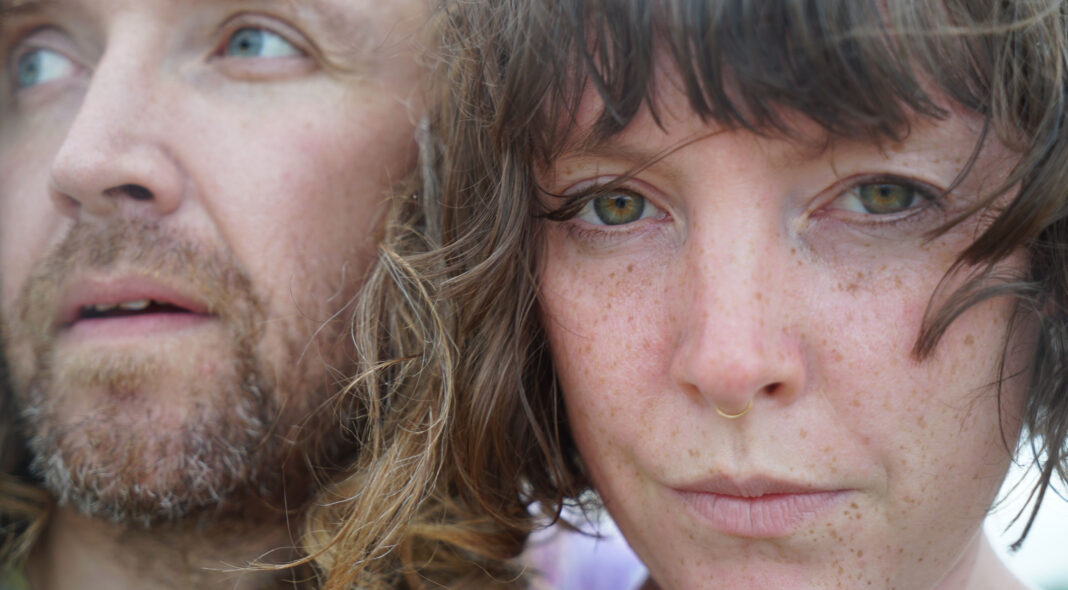There’s something so devastatingly intimate about Sylvan Esso’s ‘Free Love’, headphones feel like a necessity.
On their third full-length album, vocalist Amelia Meath and producer Nick Sanborn continue on their mission to push the boundaries of pop music, blending edgy electronic sounds with Meath’s gorgeous vocals. The end results are ten angular, multi-faceted synth-pop gems and a stunning addition to their growing catalogue.
The opening track ‘What If’ seems like an answering salvo to their 2017 album ‘What Now’. It’s this minimalist song that makes you listen hard to hear every contour of Meath’s fluid voice as it wraps around Sanborn’s sparsely looping synths. It’s a scintillating teaser for the rest of the album, which shows the duo a little bolder, their sound a little fuller, and in some ways, a lot more willing to challenge listeners. On the album, the band seems to have shifted slightly from its singalong roots seen in earlier songs like ‘Hey Mami’ and ‘Radio’. The songs on the new album are simultaneously more cohesive, but also edgier, expecting more of the listeners who have joined them for the ride. It’s well worth the effort to dive into songs like ‘Frequency’ with its slow simmer and the gentle urgency of ‘Make it Easy’, while a few listens will get you onboard with ‘Train’, ‘Numb’ will leave you anything but, after a few spins.
READ MORE: An interview with Sylvan Esso
The true stand-out of the album is the track they rightly selected as the lead single, ‘Ferris Wheel’ with its soaring meditation on love and lust and everything in between. On ‘Frequency’, Meath returns to the theme of falling in love, but now describing her feelings for a disembodied voice coming through the radio, a poignant concept in these isolated, lonely times. The ebullient energy of ‘Rooftop Dancing’ manages to capture a moment designed for 2020, too, where we are stuck at home, thrilled to find happiness in odd corners, and dancing on a rooftop feels like a joyous escape.
Between the songs, and adding to the album’s intimacy, Meath and Sanborn offer glimpses of life behind the scenes, throwing in bits of conversation for good measure, bringing listeners into the studio and their world. Their relationship on the album goes beyond just a musical collaboration. The interplay between Meath’s distinctive voice and Sanborn’s ebbing and flowing synths have evolved into a conversation, a call and response filled with questions and pauses, responses and reflections. It’s something they have been honing over the last eight years together. When Meath declares, “I love you!” at one point, it’s clear she is talking to Sanborn, but also to everyone listening to the song. And when the album’s final track ends with the request, “Play it again!” there’s little doubt that listeners will comply.




